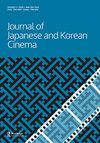当代亚洲的跨国界独立电影制作
引用次数: 4
摘要
本章转向长期居住在日本的中国人李英,并将李早期的两部纪录片《2H》(1999年)和《阿吉》(2003年)框定为“流离失所的电影”。本研究将李瑛的独立电影创作置于华语电影与流散电影的交汇点。我认为这些纪录片是如何探索和存档跨越日本内外华文和流散社区的跨历史和跨国情感联系的。因此,我们可以设想一个中国在日电影,它松散地汇集了自20世纪80年代中期以来抵达日本的中国在日制片人的当代电影和媒体作品,挑战我们质疑其不成文的史学,并重新思考中日跨国电影。本文章由计算机程序翻译,如有差异,请以英文原文为准。
Independent filmmaking across borders in contemporary Asia
This chapter turns to a long-term Chinese resident in Japan, Li Ying, and frames two of Li’s earlier documentaries, 2H (1999) and Aji (2003), as ‘films of displacement’. This study situates Li Ying’s independent filmmaking at the conjuncture of Sinophone cinema and diasporic filmmaking. I argue how these documentaries have explored and archived transhistorical and transnational affective connections traversing various Sinophone and diasporic communities within Japan and beyond. We could, therefore, en-vision a Chinese-in-Japan cinema which, loosely assembling contemporary film and media works by Chinese-in-Japan filmmakers who have arrived in Japan since the mid-1980s, challenges us to question its unwritten historiography and to rethink Sino/PRC-Japanese transnational cinema.
求助全文
通过发布文献求助,成功后即可免费获取论文全文。
去求助
来源期刊

Journal of Japanese and Korean Cinema
Arts and Humanities-Visual Arts and Performing Arts
CiteScore
0.60
自引率
0.00%
发文量
16
期刊介绍:
Journal of Japanese and Korean Cinema is a fully refereed forum for the dissemination of scholarly work devoted to the cinemas of Japan and Korea and the interactions and relations between them. The increasingly transnational status of Japanese and Korean cinema underlines the need to deepen our understanding of this ever more globalized film-making region. Journal of Japanese and Korean Cinema is a peer-reviewed journal. The peer review process is double blind. Detailed Instructions for Authors can be found here.
 求助内容:
求助内容: 应助结果提醒方式:
应助结果提醒方式:


